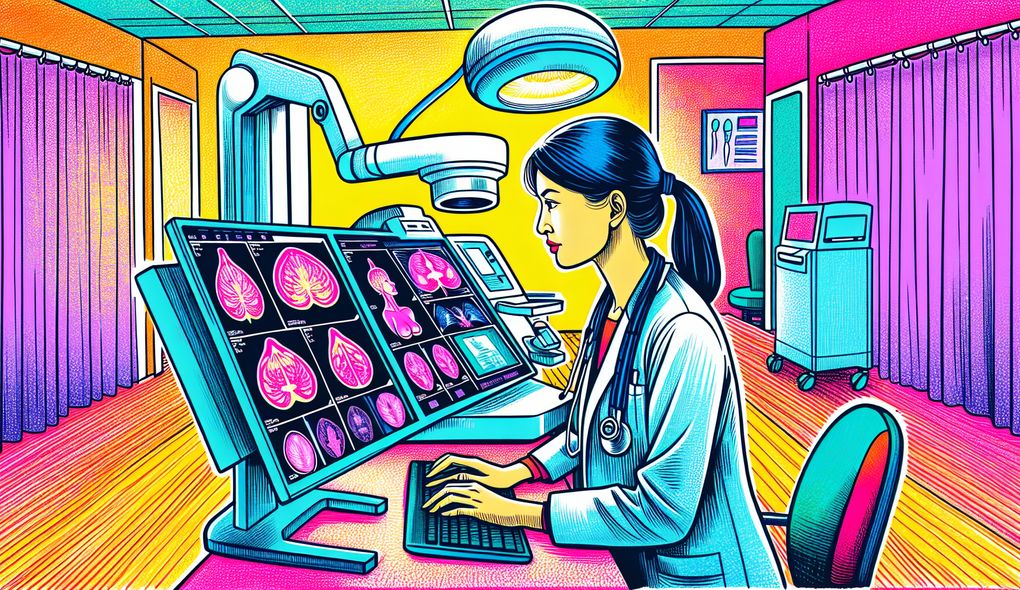What steps do you take to maintain accurate records and reports of imaging findings?
SENIOR LEVEL

Sample answer to the question:
To maintain accurate records and reports of imaging findings, I follow a systematic approach. First, I ensure that all relevant patient information is correctly entered into the system, including demographics and clinical history. Then, I carefully review each imaging study and compare it to previous studies for consistency and any changes. I use a standardized reporting template to document my findings, ensuring clear and concise communication. Additionally, I regularly communicate with referring physicians to discuss any abnormal findings or follow-up recommendations. Finally, I ensure that all records and reports are securely stored in compliance with HIPAA regulations.
Here is a more solid answer:
Maintaining accurate records and reports of imaging findings is a crucial aspect of my role as a Breast Imaging Specialist. I utilize my expert knowledge of various breast imaging modalities, including mammography, ultrasound, and MRI, to ensure accurate interpretation and diagnosis. To maintain accuracy, I follow a systematic approach that begins with carefully reviewing each imaging study, comparing it to previous studies, and identifying any changes or abnormalities. I document my findings using a standardized reporting template, providing clear and concise communication to referring physicians and other members of the healthcare team. Additionally, my strong analytical and problem-solving skills allow me to identify any discrepancies or inconsistencies and take appropriate action. I prioritize excellent written and verbal communication to ensure that all records and reports are accurately documented and that important findings are effectively communicated to the relevant stakeholders. I also value collaboration and actively engage in multidisciplinary team meetings to contribute to treatment planning discussions and ensure comprehensive patient care.
Why is this a more solid answer?
The solid answer goes into more detail about the candidate's expertise in breast imaging modalities and interpretation, as well as their problem-solving skills and ability to work collaboratively. It also provides specific examples of actions taken to maintain accurate records and reports.
An example of a exceptional answer:
In my role as a Breast Imaging Specialist, maintaining accurate records and reports of imaging findings is of utmost importance. To achieve this, I have developed a comprehensive and efficient system. Firstly, I thoroughly review each imaging study, analyzing it in detail and comparing it to previous studies to detect any changes or abnormalities. I utilize advanced imaging software and technology to enhance the accuracy of my interpretations. When documenting my findings, I am meticulous and pay close attention to detail, ensuring that all pertinent information is included. To facilitate effective communication, I have developed strong relationships with referring physicians and other healthcare providers, regularly engaging in discussions to provide additional context and clarify any questions they may have. Additionally, I actively participate in ongoing professional development, attending conferences and workshops to stay up-to-date with the latest advancements in breast imaging technology and techniques. This allows me to continuously refine and improve my skills as well as implement best practices to maintain accuracy and efficiency in record-keeping. Ultimately, my commitment to maintaining accurate records and reports stems from my dedication to delivering high-quality, patient-centered care.
Why is this an exceptional answer?
The exceptional answer provides a thorough and detailed explanation of the candidate's approach to maintaining accurate records and reports, including their use of advanced technology and ongoing professional development. It also emphasizes their dedication to delivering high-quality, patient-centered care.
How to prepare for this question:
- Familiarize yourself with different breast imaging modalities, such as mammography, ultrasound, and MRI, and their interpretation.
- Develop a systematic approach to reviewing and comparing imaging studies for accuracy and consistency.
- Practice documenting findings using a standardized reporting template, ensuring clear and concise communication.
- Improve your analytical and problem-solving skills to identify discrepancies and take appropriate action.
- Work on your written and verbal communication skills to effectively communicate findings to referring physicians and other members of the healthcare team.
- Engage in multidisciplinary discussions and collaborate with other healthcare professionals to contribute to comprehensive patient care.
- Stay updated with advancements in breast imaging technology and techniques through continuous education and professional development opportunities.
- Maintain a strong focus on delivering high-quality, patient-centered care in all aspects of your work.
What are interviewers evaluating with this question?
- Expert knowledge of breast imaging modalities and interpretation.
- Proficiency in breast interventional procedures.
- Strong analytical and problem-solving skills.
- Excellent written and verbal communication skills.
- Ability to work collaboratively in a multidisciplinary healthcare environment.

